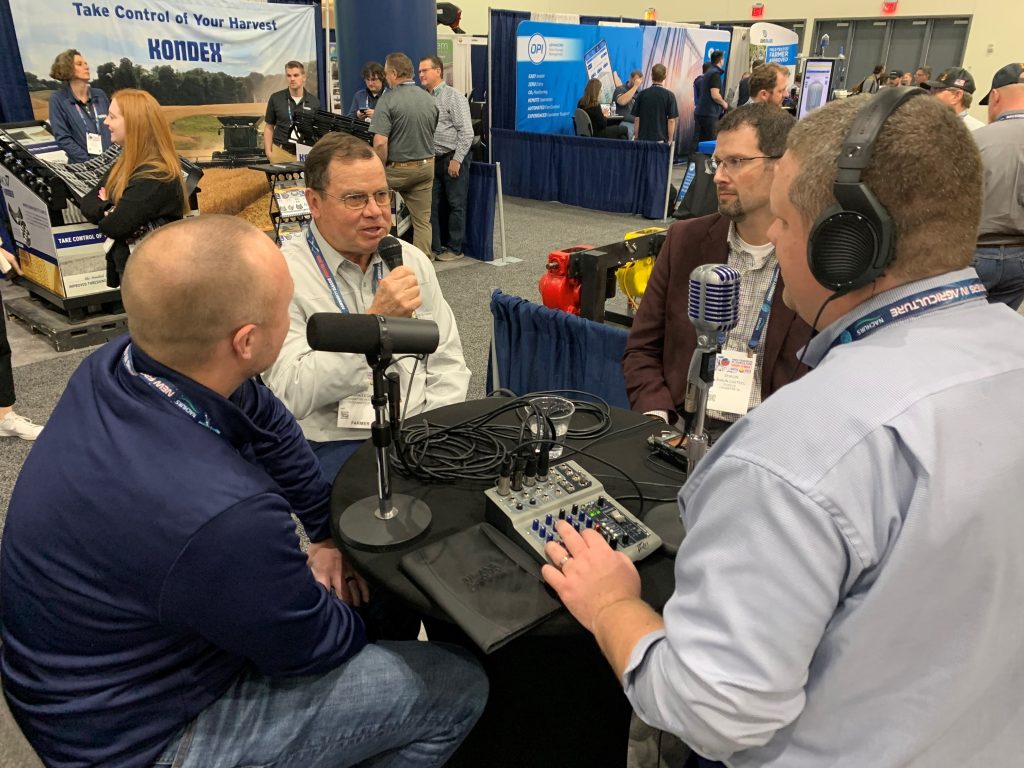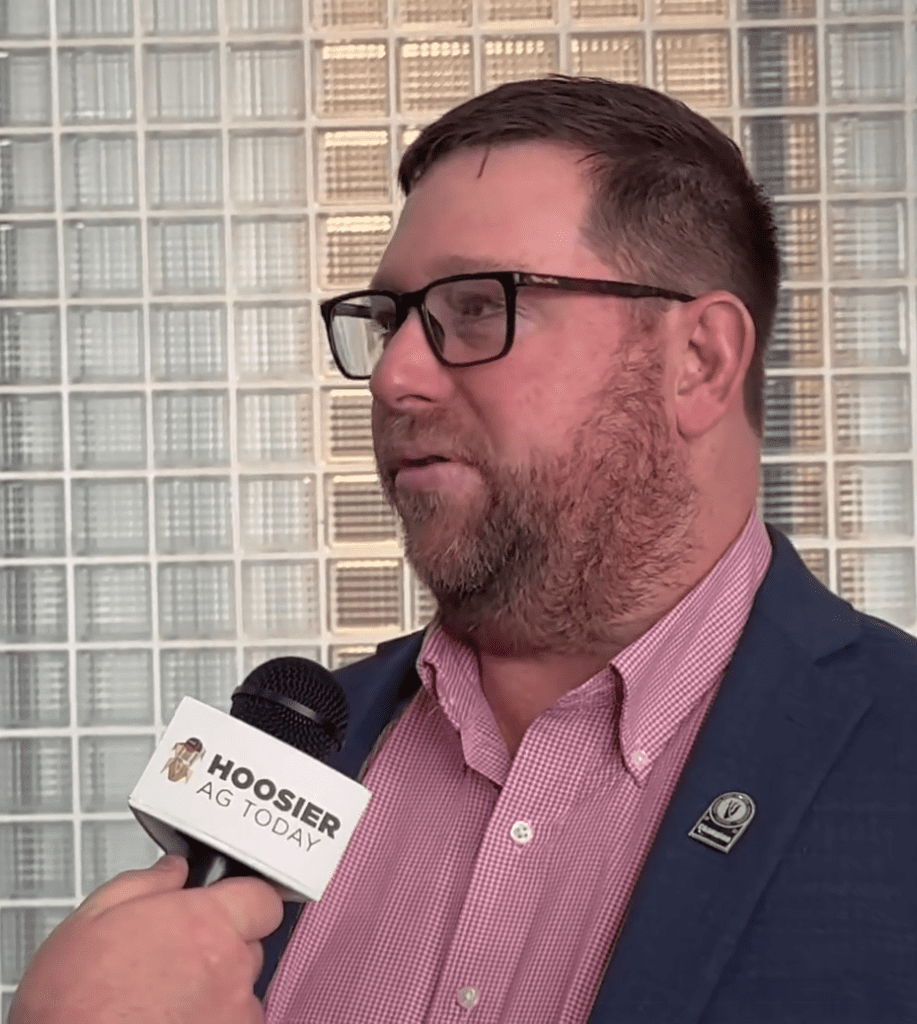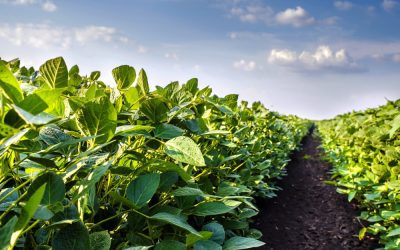2024 Commodity Classic offered many experiences for farmers in attendance
By Dave Blower Jr.
The Commodity Classic is a little like a three-ring circus. While the spotlight is fixed on the trapeze artists flying above the center ring, there are still entertaining jugglers and acrobats performing in the outer rings. For the more than 11,500 farmers and ag stakeholders who attended this year’s event in Houston, Texas, Feb. 28-March 2, so much was going on it was easy to miss something.
The Commodity Classic is organized and presented by five membership associations: the National Corn Growers Association, the American Soybean Association, the National Association of Wheat Growers, the National Sorghum Producers and the Association of Equipment Manufacturers. The Classic features a large and growing trade show, national meeting space for each commodity association, educational seminars and a variety of entertainment options.
For many years, the Indiana Soybean Alliance (ISA), the Indiana Corn Marketing Council (ICMC) and the Indiana Corn Growers Association (ICGA) have participated in the annual event. In 2024, these groups hosted several dozen Hoosier farmers along with staff during the week-long event.

“The Commodity Classic is a great time for farmers to get together to discuss agriculture on a national level,” said ICMC President Tim Gauck, a farmer from Greensburg, Ind. “This year’s show featured many unique events for Indiana’s corn and soybean farmers. We talked with companies trying to expand the use of ethanol and sustainable aviation fuel. And we heard from the administrator of the EPA and the USDA secretary about a new office that caters to farmers. This was a very productive event.”
The following is a round-up of various events from the 2024 Commodity Classic.
McKinney Friend of Farmer award
Although it was announced during the Ag Policy Summit last summer, Ted McKinney had been unable to receive his Friend of Farmer award from ISA’s Membership & Policy (M&P) Committee and ICGA until a reception on Thursday, Feb. 29 at the American Soybean Association (ASA) booth at the trade show.
McKinney, who now serves as the CEO of the National Association of State Departments of Agriculture, was selected for the award due to his many years of service to Indiana agriculture. For 19 years he worked for Dow Agrosciences and 14 years with Elanco Animal Health in various roles. His career in government began in 2013 when he was appointed by Gov. Mike Pence to serve as Director of the Indiana State Department of Agriculture. His political career continued when President Donald Trump nominated him in July 2017 as USDA Under Secretary for Trade and Foreign Agricultural Affairs.
McKinney is the sixth person to earn this honor. Previous winners include State Rep. Ed Soliday, U.S. Sen. Joe Donnelly, U.S. Rep. Jackie Walorski, State Sen. Jean Leising and State Rep. Don Lehe.
“Two words: special and humbling,” McKinney said. “First, just the fact that only six of these awards have been presented, and then seeing the list of those who received it are people I held up as icons in Indiana agriculture. So, to be among them is pretty special, and I’m honored.”
USDA and EPA speeches
As has been his custom for the past couple of years, USDA Secretary Tom Vilsack addressed the General Session of the Commodity Classic on Friday, March 1. This time, though, he brought along a fellow leader in government – U.S. Environmental Protection Agency Administrator Michael Regan. Vilsack and Regan announced the creation of a new Office of Agriculture and Rural Affairs within the EPA.
Regan touted the new office as “an important step that will help solidify EPA’s relationship in the agriculture sector for the future.” Rod Snyder, a former lobbyist for the National Corn Growers Association (NCGA), will lead the office.
“We are excited that (Vilsack and Regan) both joined us here at the Commodity Classic and addressed the farmers,” said Springport, Ind., farmer Matthew Chapman, who is a past ISA chair. “This is the first time we’ve ever had the EPA Administrator here. It does feel like they’re heading in the right direction. They’re near the finish line.”
The USDA and EPA leaders, however, did not mention much about advancing production of Sustainable Aviation Fuel (SAF) or allowing year-round sales of E15, a blend of 15 percent ethanol with 85 percent petroleum. Vilsack said he expects more details on both as the year progresses. He wants the programs to be reliable and beneficial to U.S. farmers.
“I expect things to move slowly when the government is involved,” Chapman added. “But the words Secretary Vilsack used were ‘measure twice, cut once,’ and I do hope they’re taking that approach. They’re trying to do it the right way. Trying to make sure everything’s on the right path and, most of all, the American farmer is protected through the process and can be a beneficiary of all these new ideas.”
Farm bill, specialty crops and more
With so many farmers and ag stakeholders in the same place at one time, talk of a long-overdo farm bill was common. Ferdinand, Ind., farmer J.R. Roesner said he expects many U.S. farmers have the same goal for 2024 – seeing a new farm bill adopted. He is a member of the NCGA’s Corn Board and a director on both the ICMC and ICGA boards.

“We’re continuing to push for passage this year,” Roesner said. “We’re really focusing in on our priorities with crop insurance, with some of the foreign market development and market access programs to help trade promotion, and also finding ways we can improve those safety nets through ARC and PLC that farmers need. Especially given the downturn in farm prices here.”
Indiana farmers Mike Koehne and Don Wyss talked to farmers about growing specialty crops such as high oleic soybeans. Koehne is a farmer from Greensburg, Ind., and an ISA Board director. He is also on the ASA board and a member of the Soy Transportation Coalition. Wyss is a farmer from rural Allen County, Ind., and he is a director on the United Soybean Board, the national soybean checkoff. Both farmers referred to the positive impact of premiums paid for farmers for growing high oleic soybeans.
“The high oleic program has had checkoff funds invested into it for many years, and that investment has been significant,” Wyss said. “When you consider the premiums that have been paid back to farmers easily out-distances that investment.”
Koehne agreed. “We grow high oleic soybeans on our farm. As a small farm operator, the premiums paid for these beans help a lot. This really brings value back to our farm.”
While participating in a podcast, Putnam County, Ind., farmer Mark Legan discussed the differences between the terms stewardship and sustainability. Legan grows soybeans and corn and is a pork producer. He’s an ISA Board director and an executive board member of the U.S. Meat Federation.
“So, among the core values of our farm, one of those is stewardship. We established that about 15 years ago before sustainability was a sexy word to use,” Legan explained. “I like the word stewardship because it talks about taking care of our animals, taking care of the soil and the water and taking care of our community. We feel very fortunate in Putnam County. We have a progressive group of producers adopting no-till as far back as 20-25 years ago – and even cover crops in the last 12-15 years. On our farm, we use cover crops on every acre after corn and soybeans.”
Posted: March 23, 2024
Category: ICGA, Indiana Corn and Soybean Post - March 2024, ISA, Membership and Policy, News




